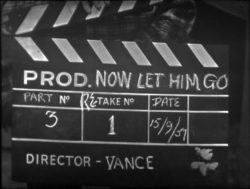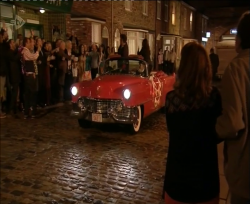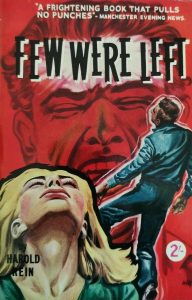by OLIVER WAKE
Five plays. Writers: Keith Dewhurst, Fay Weldon, Bernard Kops, Stephen Davis, Michael Wall; Producer: Robin Midgley; Directors: Robin Midgley, James Cellan Jones, Robert Walker, Donald McWhinnie
During the 1960s, live television drama on British screens was slowly phased out in favour of the convenience and control afforded by pre-recording on videotape. Ever since, there were murmurs that some unique, special quality inherent in live performance had been lost and occasional attempts have been made to revive the form. One of the most interesting of these attempts was Live from Pebble Mill, produced from BBC Birmingham in 1983.
Live from Pebble Mill was conceived and produced by Robin Midgley, the head of drama for BBC Birmingham, who had a background in the theatre and had worked on live television drama in the 1960s. He insisted the project wasn’t simply a nostalgic exercise in retro television production, but an attempt at forcing a more imaginative form of staging through the use of the live method: “We’re not trying to turn the clock back. Quite the reverse, in fact. Instead of going for the usual kind of ‘reality-effect’ in the studio, we’ll be using the space more imaginatively – in a sense, exploiting the live context to break with some of the conventions of naturalism.”1 Not all were impressed by his experiment, with the Radio Times reporting that one “distinguished script editor” had informed Midgeley that “you’re setting back television 20 years. Progress lies with more film, more technical sophistication, more refinement.”2



